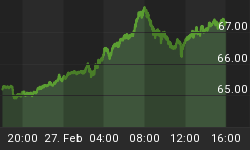A new study has revealed that the rising cost of living is leaving millions of Britons with less than $9 a day to get by on.
According to the newly released Nationwide Building Society’s Spending Report, most Britons are finding it tougher to survive financially today compared with five years ago. The research showed that four in ten have less than $8.50 for their daily expenses after bills have been paid.
It’s also changing the day-to-day habits of Britons as finances put pressure on fun.
So far, it looks like 66 percent of Britons have reduced their “outgoings” to cover essential bills, Nationwide said. And the 6.60 pounds ($8.50) that 41 percent of Britons are left with after covering their bills is about enough for a “supermarket meal deal, coffee and a chocolate bar”.
“[…] discretionary spending in most areas has dropping, including holidays, recreation, lottery and charity donations, with the only area to see an increase being eating out,” according to the report.
In dollar figures it looks something like this: For the second quarter of this year, Britons spent £60.76 less on discretionary spending than during the same period last year; and at the same time, they spent £87.80 more on essential bills than they did during the same period last year.
Over the past year, spending on essentials like housing, groceries and fuel has risen 6 percent and now consumes about 80 percent of the average U.K. salary.
In a nutshell, 67 percent says it’s harder to financially survive each month than it was five years ago, and some 26 percent are “regularly outspending their earnings”.
According to Nationwide’s research, one-quarter of adults are using credit cards and overdrafts as an extension of their bank balances. But the buy now, pay later strategy means debt is mounting by as much as $1,600 a year—just to cover essentials.
The estimate is that some 4 million credit card holders in the UK are typically in the red and doomed to paying $2.50 in interest and charges for every $1 they borrow, the Guardian reported.
What they’re not giving up in these times of austerity are cigarettes, high-speed internet, gym memberships and health/organic food. Times aren’t desperate enough to skimp on these 21st Century essentials. Related: Facebook Two Years Away From 100% Renewable Energy
And not all is lost, says Guy Simmonds, Nationwide’s head of customer management and current accounts. “Despite the reality that money is tight for some, there are encouraging signs that people are taking the right steps by cutting back on non-essential spending and finding ways to make their money go further,” he said.
Hoping to get ahead of this trending problem, the UK’s Financial Conduct Authority (FCA) has developed a new ruled that went into effect on September 1st: Anyone found to be in “persistent debt” for more than 18 months will be offered support with repayment plans and even the option to have their cards cancelled to prevent further damage.
But there might have to be some further belt-tightening with Brexit—which has already caused inflation to soar—looming. Without an advance trade deal with the European Union, the British pound could experience severe pressure next year.
According to the latest analysis by economists at UBS, Brexit has already cost the UK in terms of economic output, and is estimated to have stripped 2 percent off the country’s GDP before it’s even happened. UBS calculated that investment in the UK is four percent lower, with consumption down 1.7 percent and inflation up 1.5 percent, Bloomberg reported.
By Josh Owens for Safehaven.com
More Top Reads From Safehaven.com
















